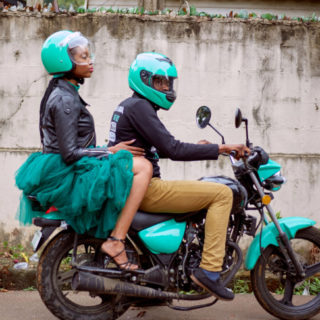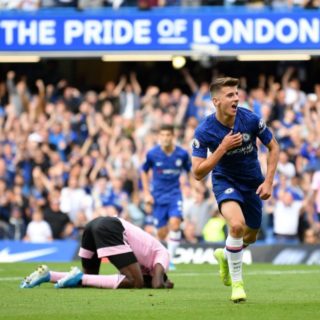It’s been a while since anyone called Nigeria the “Giant of Africa” without a hint of sarcasm shimmying between each word. Once upon a time, as the last of the colonisers left, the world had high hopes for the new African countries; more so Nigeria than anyone else.
Today, the mention of Nigeria elicits many things. In the last decade or so, our music has picked up where the older generation left off and become the hot new special sauce on the global music menu. But that’s not the entire story. So we’re asking the question “What exactly does the world know Nigeria for?”.
We’ll be answering it with help from Nigerians who live in the diaspora or have been in a position to interact with how the world perceives us.
But wait first? What was Nigeria famous for in the beginning?
Hope and Promise. Apart from having a large contingent of professionals in the diaspora, we were the most populous black nation on earth. Our music – highlife and juju – were prickling ears across the Atlantic. We had an abundance of mineral resources – palm oil, bitumen, coal, the list is long. The men at the helm of the country were young, educated, exposed and dreamy.
What was the height of Nigeria’s fame?
The 70s were a special time. It was just after the oil boom and after the unfortunate events of the civil war, Nigeria was eager to rebuild. First, we began to project the image of a strong, self-sufficient regional power. The government nationalised most big companies.
A lot of investment was also put into changing our image and positioning us as the bedrock of African pride – which is why in 1977, we hosted the Festival of Black Arts and Culture (FESTAC) which had an entire town built for its purpose. Nigeria won the African Nations Cup in this time as well.
If you had to pick the events or happenings that changed the global perception of Nigeria over time, what would they be?
“Ah. There’s a lot. I know the coups in the 60s through the 90s didn’t help. They saw us as barbarians who couldn’t manage to govern ourselves. That’s when a lot of us moved here. We were treated with concern and care but also a sense that we were a bunch of people who needed help.
Then you have diplomatic disasters like Umar Dikko affair, the killing of Ken Saro Wiwa and other political prisoners, the treatment of Fela that had entertainers around the world chastising the government. In recent times, it’s been mostly the Mutallab affair. And then this new wave of internet scammers have made things worse.”
- Tijani. Moved to the UK as a young hippie in the 80s. Now lives with his two sons in Milton Keynes, England
Any good stories in there?
“Yes. Yes. I remember how proud I was when we won gold in football at Atlanta 96. People were wearing traditional wears around the city the next day. There was also a lot of pride when we managed the Ebola crisis in a week if I remember well. People here were scared the country had a major crisis on its hands.
“Lately, it’s been the food, all this talk about who has the better Jollof, the music too. Wizkid has been a big deal here for a while now. I think the main good story, for now, is our culture – the music, the clothes, the food.”
- Tijani.
What Was The First Weird Reaction You Got When You Said You Were Nigerian?
“Every time I tell someone I’m from Nigeria, they always say “Oh, Nigerians love to party”. It’s usually people from other African countries. In my experience, white people have never really had a specific opinion about us, They just think Nigeria is so far away.”
- Simi. Baby girl and media junkie who shuttles between Lagos and London.
But How Do Foreigners view Nigerians In General? There’s for instance, a perception of young Nigerian men that stems from the fact that they’re often presented as culprits in fraud cases in places like the UK and South Africa.
“It’s there, but I don’t think it’s peculiar to Nigerians though. People see young black guys like that (and their dressing doesn’t help either). But that’s a black problem,
- Simi.
Do you notice people ascribe certain traits to you when they discover you’re a Nigerian?
“I can’t begin to explain. When I first moved to China in 2009, I felt like a slave, literally. As time went on, I found that there’s an impression there that black people are very industrious and hard-working so they tend to use us for work. I moved to Ireland and that was where I first felt this kind of raw hostility.”
“Certain people were different; the younger generation has a more globalised view of the world but they make their assumptions too. There’s this neighbour that was so sure that I knew how to play ball because I was Nigerian. I live in the US now and apart from the odd nationalist or racist, most people are just interested in my culture.”
- Ola. Owned a Barbershop in Lagos for 8 years. Moved to China, then Ireland. Now lives in Maryland, United States.
What’s the worst thing you’ve heard foreigners say about Nigerians in general?
When I was working in a Chinese owned factory in Berger, one of our foremen used to call us this thing that sounded like ‘
- Ola, Maryland, United States.
Has being a Nigerian ever gotten in your way?
“Personally, no. But I know too many people who have genuine stories. So I’ll tell you one. In 2005, just as we were getting in gear for secondary school, one of my friends moved to the US on a scholarship. We were as happy for him as we could be given the circumstances. He left high school for college in Texas studying Chemical Engineering
“And then on Christmas 2009, during his second year in University, the Mutallab thing happened. (The son of a former minister of economic development was caught trying to detonate explosives hidden in his underwear on a flight to the US.) My friend’s name was Al-Ameen, and it was around this time that his visa expired.”
“He came back to Nigeria a few days later and applied for a renewal. They didn’t give him, so he tried, three more times. After a while, about a year, he gave up and started a program at a University in Ghana. He’s never been back to the US since.”
- Stephen. Mostly lives in Detroit, Michigan in the United States. Visits Nigeria to update his pidgin and see his family.
Have you ever enjoyed any privilege of being a Nigerian?
“I can’t remember any specific instance. But one of the main perks I’ve enjoyed is a sort of social credibility. Among blacks in the US for instance, there’s a certain type of exotic respect you get for being Nigerian, growing up there and still being sound in American culture. But that aside, I can’t say.”
- Stephen
All of this must be a function of what we’ve given to the world, in a sense. What is Nigeria’s biggest export?
“Today, it’s our culture and our people. And there are figures to prove it. From the 70s, just after the civil war came to an end, till 2018, crude oil was Nigeria’s biggest export. According to the good people at Africa Check, “crude oil and oil products made up 87.7% of Nigeria’s foreign exchange earnings in the first quarter of 2018.”
“Then in 2018, something exciting happened. PricewaterhouseCoopers (PWC), a global financial powerhouse, estimates that in 2018, a total of $25.08 billion was remitted by Nigerians in diaspora into the country. This represents about 83% of the federal government’s 2018 budget in value.”
Here’s why. In the last few years, human resources have become our greatest export. First, our movie and music industry took over Africa like a tidal wave. Not satisfied, Nigerian music began to find new audiences in the West, buoyed by the support of African communities in the diaspora. On one side, foreigners of African origin began to take a greater interest in their heritage and naturally, the culture of places like Nigeria and Ghana became a , commodity.
Today, our music plays from Cyprus to Tahiti and our culture is referenced by everyone from Beyonce to designers like Gucci.
So, finally, all that said, what is Nigeria most famous for today?
“Culture. Money, Parties, Music and Lifestyle. Nigerian music is really big. Everyone wants to hop on it. Nigerian Parties as well. Crazy scenes.”
- Simi.
“I don’t know how to put this. I’d call it vibrancy. You know people say Nigerians can make the best out of any situation. That’s it – everything we do has a Nigerian touch to it and I think whether it’s in music, or movies, or even our fraudsters, people seem to know the Nigerian touch and they like it.”
- Tijani
“Our food. Our music. Black Americans love Nigerian music. Our celebrities are also somewhat popular here. Then, there’s a sense that we usually elect the oldest, dumbest people into power. So I have friends that like watching Nigerian politicians and their gaffes on Youtube. You can’t really blame them.”
- Ola




